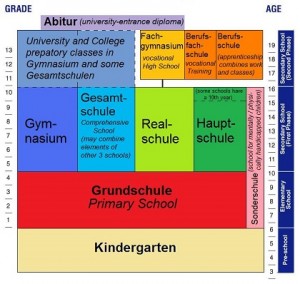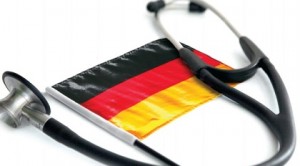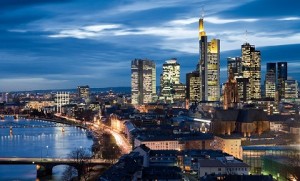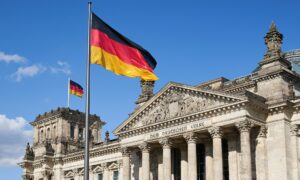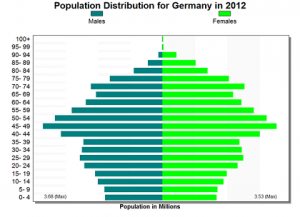The German education system has been praised for its ability to provide quality general education combined with excellent specific training for a profession or a skilled occupation. In 1992 about 65 percent of the country's workforce had been trained through vocational education. In the same year, 2.3 million young people were enrolled in … [Read more...]
Secondary Education in Germany
Secondary education, the third level of education, is divided into two levels: junior secondary education (also called intermediate secondary education) and senior secondary education. Upon completion of the Grundschule, students between the ages of ten and sixteen attend one of the following types of secondary schools: the Hauptschule, the … [Read more...]
Elementary and Primary Education in Germany
The Basic Law of 1949 grants every German citizen the right to self-fulfillment. In theory, citizens are able to choose the type of education they want and are given access to their preferred occupation or profession. The goal of educational policy is therefore to provide each citizen with opportunities to grow personally, professionally, and as a … [Read more...]
Education in Germany
The Basic Law of 1949 grants every German citizen the right to self-fulfillment. In theory, citizens are able to choose the type of education they want and are given access to their preferred occupation or profession whether it is through a business, engineering, or nursing degree. The goal of educational policy is therefore to provide each citizen … [Read more...]
Healthcare in Germany
The beginnings of the German health care system can be traced back to the Middle Ages, when craftsmen were members of guilds. The guilds provided an early form of health insurance based on the principle of solidarity: All guild members paid into a fund which was then used to help individual members if they had financial difficulties, for instance … [Read more...]
Population Distribution and Urbanization in Germany
Following unification, the Federal Republic encompassed 356,958 square kilometers and was one of the largest countries in Europe. With about 81.3 million people in mid-1995, it ranked second behind Russia in population among the countries of Europe. Unification actually reduced the Federal Republic's population density, however, because East … [Read more...]
Religion in Germany
Roman Catholicism, one of Germany's two principal religions, traces its origins there to the eighth-century missionary work of Saint Boniface. In the next centuries, Roman Catholicism made more converts and spread eastward. In the twelfth and thirteenth centuries, the Knights of the Teutonic Order spread German and Roman Catholic influence by force … [Read more...]
Structure of German Society
Most of the workforce is employed in the services sector. West Germany completed the transition from an industrial economy to one dominated by the services sector in the 1970s, and by the late 1980s this sector employed two-thirds of the workforce. In contrast, when the Berlin Wall fell, East Germany still had not made this transition. Because more … [Read more...]
Age-Gender Distribution in Germany
In the early 1990s, an age-gender distribution pyramid of unified Germany's population displayed at its apex the legacy of heavy war casualties: a preponderance of elderly women too great to be explained by women's greater longevity. Official statistics show that in 1990 there were approximately 2.7 million more females than males (41.2 million … [Read more...]
Mortality in Germany
In the postwar period, the former GDR developed a comprehensive health care system that made steady advances in reducing infant mortality and extending life expectancy for both men and women. Early in the postwar period, life expectancy in some categories was actually longer for East Germans than for West Germans, and infant mortality was lower … [Read more...]


